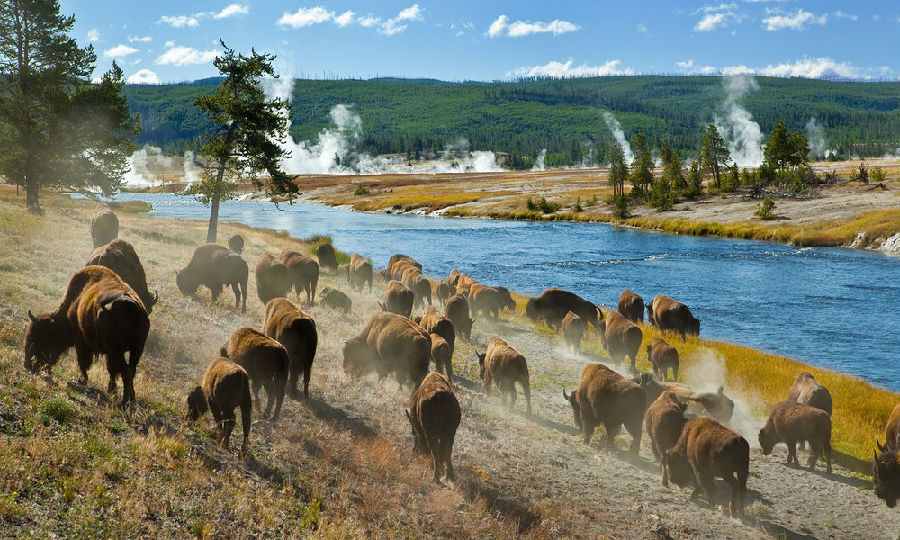Eighty million tons of rock, moving at more than one hundred miles an hour, just fell off the mountain, traveling with such force and momentum that the leading edge of the landslide ran four hundred feet up a mountain on the other side of the valley. Along its path lay part of the Rock Creek Campground. Twenty-eight campers were killed, nineteen of them buried too deep ever to be found again. The devastation was swift but heartbreakingly fickle. Three brothers, sleeping in one tent, were spared. Their parents, sleeping in another tent beside them, were swept away and never seen again.
8000万吨岩石以每小时160公里的速度从山上崩塌下来,其力量和动量是如此之大,前缘竟然冲到了峡谷对面一座山的120米高处。罗克溪露营园有一部分就在岩石的必经之地。28名露营者死亡,其中19名被埋得太深,再也没有找到。灾难发生得又快又难预测。有兄弟3人同睡一个帐篷,倒是幸免于难。他们的父母睡在旁边的另一个帐篷,却被冲得无影无踪。
A big earthquake—and I mean big—will happen sometime, Doss told me. "You can count on that. This is a big fault zone for earthquakes."
“大地震——我的意思是大的地震——迟早会发生,”多斯对我说,“我可以向你保证。这儿是个大断层地带,地震很多。”

Despite the Hebgen Lake quake and the other known risks, Yellowstone didn't get permanent seismometers until the 1970s.
尽管发生了赫布根湖地震以及别的危险,直到20世纪70年代,黄石公园才配置了永久性的地震表。
If you needed a way to appreciate the grandeur and inexorable nature of geologic processes, you could do worse than to consider the Tetons, the sumptuously jagged range that stands just to the south of Yellowstone National Park. Nine million years ago, the Tetons didn't exist. The land around Jackson Hole was just a high grassy plain. But then a forty-mile-long fault opened within the Earth, and since then, about once every nine hundred years, the Tetons experience a really big earthquake, enough to jerk them another six feet higher. It is these repeated jerks over eons that have raised them to their present majestic heights of seven thousand feet.
若要欣赏地质过程的威力和无情,你肯定挑得出比蒂顿山脉更糟糕的例子。蒂顿山脉位于黄石国家公园以南,峭壁嶙峋,非常险峻。900万年以前,蒂顿山脉并不存在。杰克逊大坑周围的土地本是一片杂草丛生的高地平原。但是,后来地球内部出现了一处64公里长的断层,自那以后,大约每隔900年蒂顿山脉就要经历一次大地震,其威力之大足以使它再升高2米。由于千万年来这样反复地往上颤动,如今它的高度已经达到雄伟的2000米。













